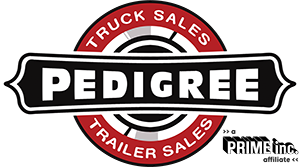Beginning on December 18, 2017, the ELD mandate went into effect, requiring most commercial trucks to maintain a digital log of their hours. While some trucking companies have had the required ELDs or other E-logs for some time, smaller fleets or independent carriers may have never dealt with ELDs before.
The learning curve for the ELD mandate can be steep if you haven’t ever used one before, and the Federal Motor Carrier Safety Association (FMCSA) has criteria that must be met to abide by the law.
Let’s go over some basic information about ELDs, learn more about the requirements set by the mandate and see what needs to be done to avoid penalties.
What is an ELD?
An ELD, or electronic logging device, is a piece of technology that connects to the engine of a truck or bus to determine how long the vehicle has been running, at what speed and when breaks are taken. ELDs replace the traditional paper log books that have been used to keep hours of service (HOS) records of duty status (RODS).
Drivers are responsible for keeping a functioning ELD that correctly maintains their hours of service. ELDs ensure that others are able to check your driving hours if you are pulled over or stopped.
Who has to comply?
Simply put, if you drive a commercial bus or truck, you will likely have to comply with the ELD rule. The ELD mandate applies to anyone who drives a commercial motor vehicle as defined by the FMCSA.
The FMCSA defines a commercial motor vehicle as a vehicle that:
- Has a weight of 10,001 pounds or more
- Is used to transport 8+ passengers for compensation or 15+ passengers not for compensation
- Is used to transport material found by the Secretary of Transportation to be hazardous
With that being noted, there are certain exemptions even for those who are driving a commercial motor vehicle. The FMCSA lists several ELD exemptions including:
- Drivers who operate with short-hauls may continue to use time cards but must still maintain RODS
- Drivers who use paper RODS for 8 days or fewer in a 30 day period
- Drivers who do drive-away tow-away operations
- Drivers of vehicles manufactured before 2000
What about AOBRDs vs ELDs?
An AOBRD is an “automatic on-board recording device” that has been defined by the FMCSA as “an electric, electronic, electromechanical, or mechanical device capable of recording driver’s duty status information accurately and automatically as required by §395.15.” This device is similar to ELDs in that it also records the speed, miles driven, date and time, and use of the engine.
One of the main differences between AOBRDs vs ELDs is that ELDs are far more complex pieces of technology than AOBRDs, which is why they are going to be the new area of regulation. For instance, ELDs can capture the same pieces of information as an AOBRD in regards to speed, miles driven, and more, only this information is more standard than with AOBRDs. ELDs can transfer RODS data to the FMCSA automatically and capture RODS data at each duty change and every 60 minutes while the vehicle is in motion, and while the engine powers on and off. Further, an ELD allows for edits to be made in the event that data is tracked wrong.
An AOBRD does not replace an ELD entirely, though they may be used temporarily. An AOBRD that was installed before December 17, 2017 can be used until December 16, 2019. Any AOBRD installed after December 17 is not compliant with FMCSA standards. After December 16, 2019, AOBRDs will no longer be accepted as suitable alternatives to ELDs.
>
What happens if I don’t comply with the ELD mandate?
Being unwilling to comply with the ELD mandate is a costly decision to make. Even if a driver is keeping paper logs, they will receive a HOS RODS violation for not having an ELD. Depending on the severity of the violation, a truck may be put out of service.
Fines may be issued by state agencies depending on the state, for instance, Missouri’s fine is set at $172 while Colorado’s fine is $67. This is only a single fee and can be issued for each stop without an ELD. This fine does not include the cost to a fleet that is regularly disobeying ELD laws or the cost of missing hours of work due to being taken out of service, costs that can stack up quickly.
Some states have issued grace periods where they may issue a citation but will not take you off the road. This grace period goes until April 1st, 2018, after which they will begin to apply out-of-service to trucks that do not have ELDs installed and are being used.
Do you have questions about the ELD mandate or need help complying with the new standards?
Contact us at Pedigree and our experts can help guide you through the ELD mandate and how you can keep your fleet up to date. Consider Prime Inc.’s Power Only Advanced Fleet Program to keep your own authority, get fuel and equipment discounts, and an e-log option.

